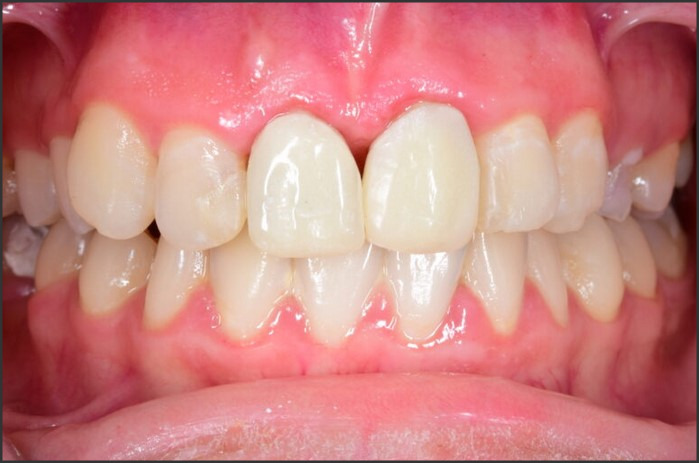Receding Gums: Causes, Prevention, and Treatment Options

Receding gums is a common dental condition that affects many people. It occurs when the gum tissue around the teeth begins to pull away from the teeth, exposing more of the tooth and root. This can cause sensitivity, pain, and even tooth loss if left untreated. Fortunately, there are a variety of treatments available to help prevent and treat receding gums. In this article, we will discuss the causes, prevention, and treatment options for receding gums. We will also provide tips on how to maintain healthy gums and teeth.
Understanding the Causes of Receding Gums: What You Need to Know
Receding gums, also known as gingival recession, is a common dental condition that affects many people. It occurs when the gum tissue surrounding the teeth begins to pull away from the teeth, exposing the roots of the teeth and making them more vulnerable to decay and infection. While receding gums can be caused by a variety of factors, understanding the causes of this condition can help you take steps to prevent it from occurring.
One of the most common causes of receding gums is periodontal disease. Periodontal disease is an infection of the gums and surrounding tissues that can cause the gums to pull away from the teeth. This can lead to gum recession, as well as other serious dental problems. If you have periodontal disease, it is important to seek treatment from a dentist as soon as possible to prevent further damage to your gums and teeth.
Another cause of receding gums is aggressive brushing. Brushing your teeth too hard or using a hard-bristled toothbrush can cause the gums to recede. It is important to use a soft-bristled toothbrush and to brush gently to avoid damaging the gums.
In addition, receding gums can be caused by certain medications. Some medications, such as those used to treat high blood pressure, can cause the gums to recede. If you are taking any medications, it is important to talk to your doctor about any potential side effects.
Finally, receding gums can also be caused by genetics. If you have a family history of receding gums, you may be more likely to develop the condition.
Understanding the causes of receding gums can help you take steps to prevent it from occurring. If you are concerned about receding gums, it is important to talk to your dentist about your risk factors and to get regular dental checkups. With proper care and treatment, you can help keep your gums healthy and prevent further damage.
Preventing Receding Gums: Tips and Strategies for Maintaining Healthy Gums
Maintaining healthy gums is essential for overall oral health. Receding gums can lead to a number of dental problems, including tooth decay, gum disease, and even tooth loss. Fortunately, there are a number of steps you can take to prevent receding gums and keep your gums healthy.
1. Brush and Floss Regularly: Brushing and flossing your teeth twice a day is essential for preventing receding gums. Make sure to use a soft-bristled toothbrush and fluoride toothpaste. When brushing, use gentle circular motions and pay special attention to the gum line. Flossing helps remove plaque and food particles from between your teeth and along the gum line.
2. Use an Antiseptic Mouthwash: An antiseptic mouthwash can help reduce plaque and bacteria in your mouth, which can help prevent receding gums. Look for a mouthwash that contains fluoride and other ingredients that can help reduce inflammation and irritation.
3. Avoid Tobacco Products: Smoking and other forms of tobacco use can increase your risk of receding gums. If you use tobacco products, it’s important to quit as soon as possible.
4. Visit Your Dentist Regularly: Regular dental checkups are essential for maintaining healthy gums. Your dentist can check for signs of gum disease and provide treatment if necessary.
5. Eat a Balanced Diet: Eating a balanced diet is important for overall health, including your gums. Make sure to include plenty of fruits and vegetables in your diet, as well as foods that are high in calcium and vitamin C.
By following these tips, you can help prevent receding gums and maintain healthy gums. If you have any questions or concerns about your oral health, be sure to talk to your dentist.
Conclusion
In conclusion, receding gums can be caused by a variety of factors, including poor oral hygiene, genetics, and certain medical conditions. Fortunately, there are a number of prevention and treatment options available to help prevent and treat receding gums. These include brushing and flossing regularly, using a soft-bristled toothbrush, avoiding tobacco products, and visiting your dentist regularly for professional cleanings and checkups. Additionally, there are a number of treatments available to help restore the gum tissue, including gum grafts, laser therapy, and tissue regeneration. With the right prevention and treatment plan, receding gums can be managed and prevented.